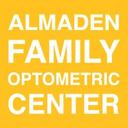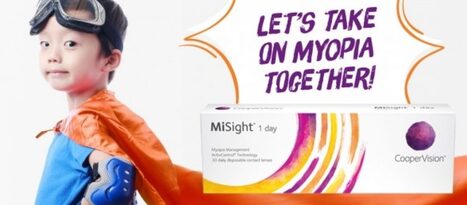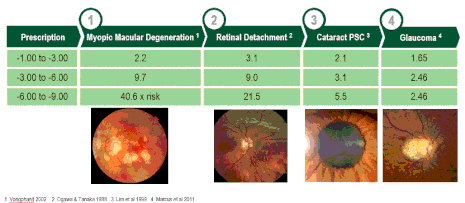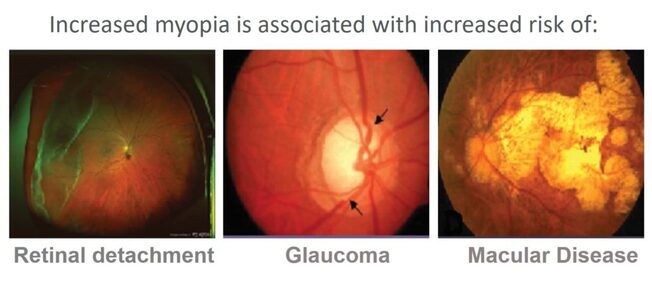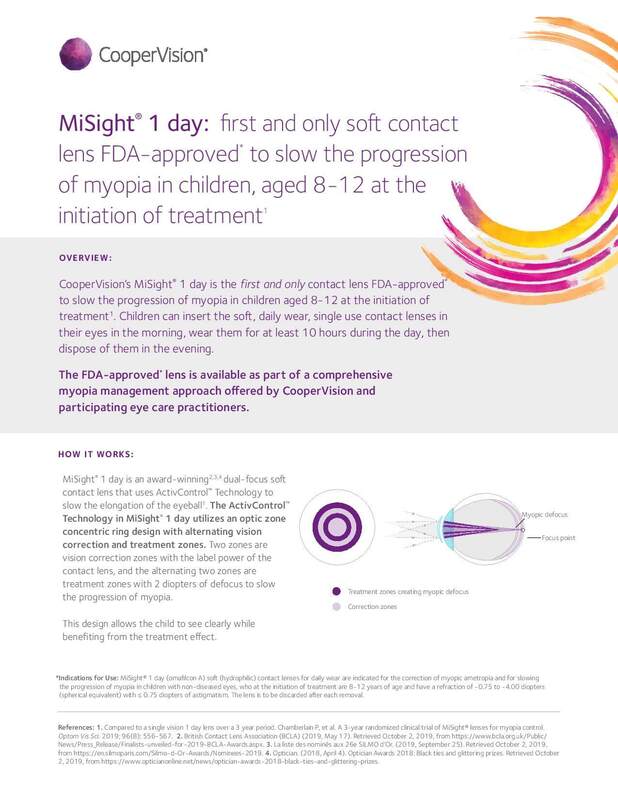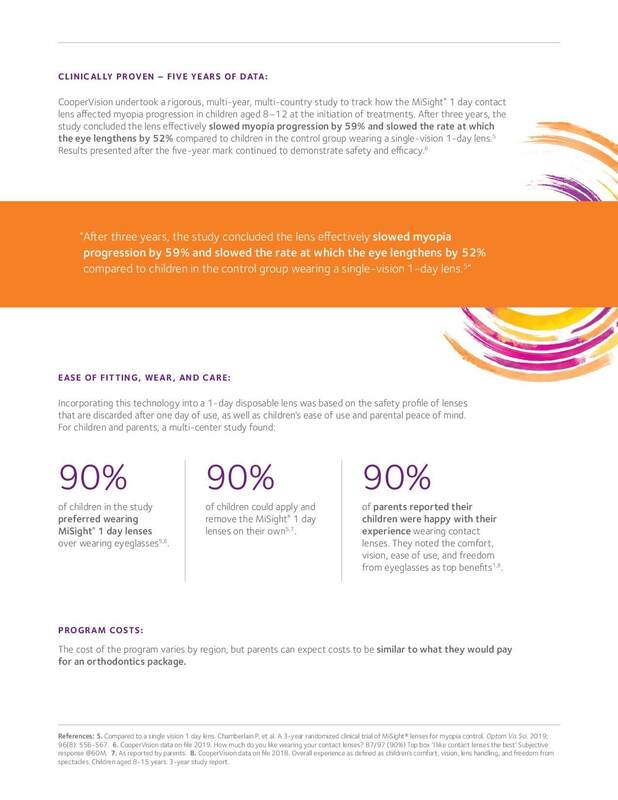What is Myopia?
Myopia, or more commonly known as nearsightedness, is the result of oblong growth of the eye whether that be from genetics or lifestyle; the eyeball grows too long making images focus improperly on the retina and causing distant objects to appear blurry. And as children are spending more and more time on a screen and less time outdoors, myopia is quickly becoming an epidemic. For a quick survey assessing your child's risk of myopic progression click here.
Consequences of Myopia
|
The consequences of myopia extend past simply needing thicker glasses or being unable to see the whiteboard, letting myopia go untreated may leave your child at risk of irreversible damage to central vision as myopic macular degeneration is nearly 10 times greater in myopia over -3.00D and over 40 times greater in myopia over -6.00D. Additionally, the risk of glaucoma, cataracts, and even retinal detachment (which can result in permanent vision loss) increases with increased myopia power.
|
What can we do?
At least 2 hours of outdoor activity has been correlated with later onset and reduced progression of myopia. But here at Almaden Family Optometric Center, we also have various options you can choose from to slow the progression of your child's myopia. Dr. Jennifer Hsieh can fit your child with MiSight contact lenses (the first and only FDA approved soft contact lens to slow myopia progression in children 8-12 years old) or the Paragon CRT Ortho-K nighttime contact lenses for myopia treatment. Dr. Hsieh may also prescribe Atropine eye drops for usage at night to help with slowing down myopia progression too.
Ortho-K contact lenses are specialty nighttime contact lenses that allow children to correct their nearsightedness while they sleep so they will be free from glasses and contact lenses during the day. On the Paragon CRT website, you can also find information on some of the commonly asked questions that you may have about the nighttime hard contact lenses used for correcting nearsightedness.
https://www.paragonvision.com/faq/
Please read more about Misight soft contact lenses below, as well as visit the links below:
https://coopervision.com/contact-lenses/misight-1-day
https://coopervision.com/myopia-simulator
Each myopia control program is customized based on the individual patient's prescription, eye shape (corneal contour), lifestyle, reading demand, personality, etc. Please call or text our office at (408) 997-2020 so we can schedule your child to come in for a myopia consultation appointment with Dr. Hsieh.
Ortho-K contact lenses are specialty nighttime contact lenses that allow children to correct their nearsightedness while they sleep so they will be free from glasses and contact lenses during the day. On the Paragon CRT website, you can also find information on some of the commonly asked questions that you may have about the nighttime hard contact lenses used for correcting nearsightedness.
https://www.paragonvision.com/faq/
Please read more about Misight soft contact lenses below, as well as visit the links below:
https://coopervision.com/contact-lenses/misight-1-day
https://coopervision.com/myopia-simulator
Each myopia control program is customized based on the individual patient's prescription, eye shape (corneal contour), lifestyle, reading demand, personality, etc. Please call or text our office at (408) 997-2020 so we can schedule your child to come in for a myopia consultation appointment with Dr. Hsieh.
